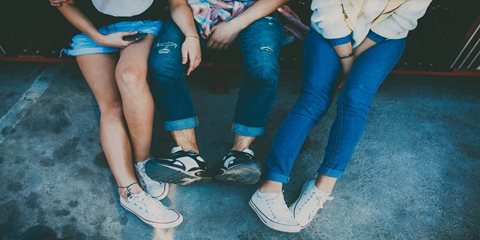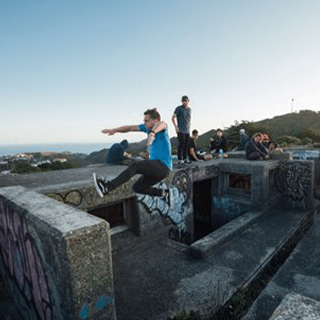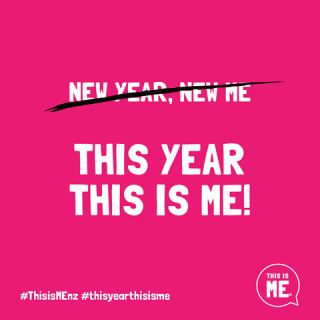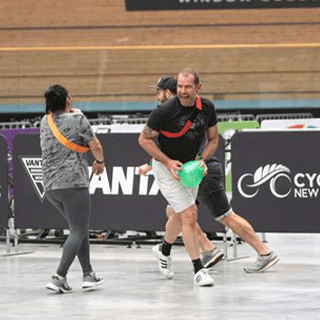What is stopping our rangatahi (youth) from being active?

More and more often I see young women sitting around at lunch time on their phones or side-lining themselves in PE class at school and wonder why. I lived for getting in on the action and being active when I was at school; I loved the social connections, the competitive nature of sport, how being active made me feel – there’s no better feeling than playing a great game where you gave it your all.
So of course we need to ask ourselves - what is stopping them from choosing to be active? I’m driven to dig deeper into what is preventing every young woman from sharing the same positive relationship, experience and love I had for play, active recreation and sport.
This year’s Youth Week 2022 theme ‘Our Voices Matter, We Deserve to be Heard’ is particularly relevant if the Waikato region – and our country - are to reverse the current trend in drop off of physical activity for the rangatahi (teenagers) of New Zealand. We see a marked decline in the rate of participation from the age of 15 for all rangatahi, but this is even greater for our young waahine (women). And there is another point of physical activity drop off again at age 17 (Active NZ, 2020).
Our rangatahi are trying to tell us something: whatever we are doing to encourage them to choose physical activity is not working for them. Youth Week 2022 is a great reminder for all of us to listen to their voice – we cannot reverse this trend if we are not willing to give them a platform to share their opinions.
Those with less knowledge about the drop off rate in physical activity for our young women tend to make assumptions that place blame. Common assumptions are that young women are lazy; they spend too much time on social media or sitting around with friends. This may be how it appears on the surface, but it’s not until you dig deeper to consider the 'why’, and what barriers there may be that are preventing rangatahi from choosing physical activity that you start to understand it’s a far more complex issue. Barriers such as part-time jobs, lack of resources required to participate, lack of energy, prioritising other responsibilities are among the many (Active NZ, 2020).
For most of us, the freedom to be active and participate in sport or active recreation is a privilege which we can take for granted. Given these barriers, for some young people is it even a choice they have the luxury of making?
For me, the answer has become more obvious over the last year in my role - opportunities currently available are not always meeting the needs of these young women. This creates further barriers and ultimately results in sometimes giving them no choice but to opt out of participating in physical activity. In particular, opportunities that are too competitive, require a higher level of skill, or are isolating are not favourable for the majority of our young women in the region.
The latest Voice of Rangatahi Survey information tells us that young women like to be active with their friends, in a more social environment and away from the typical traditional sports. This is what they have told us. Now is the time to take on board their voice and design our offerings around their needs.
Sport Waikato is putting the youth voice at the forefront of its mahi (work) in order to address this decline. We want to ensure that we – and our stakeholders - are strategic, collaborative, attentive to their needs and tackle the issue head on. Through our initiatives such as This is ME® women and girls targeted initiative, youth coaching and secondary school engagement, we want to ensure that young people are given the opportunity to speak.
This is ME® has a strong focus around ‘Nothing About Us Without Us’ which strongly supports this year’s Youth Week theme. This is ME® puts Waikato’s young women and their voice at the centre, including co-design with providers to building opportunities around them that meet their wants and needs for physical activity.
It is not just our young women who are finding challenges to becoming – or remaining – active. Right across our region a wide variety of communities have experienced challenges to keeping active every day. Some of these barriers can be related to the large geography of our region - excessive travel, a reduced number of activity options, or lack of players to create sports teams in the area.
Add to those barriers rangatahi participation being adversely affected by cost (Voice of Rangatahi 2021), and equipment availability. Could it be barriers caused by the impact of human resources? As it gets tougher to find volunteers (State of Volunteering in New Zealand Report 2020), youth sport and active recreation is no exception. Are we, the adults who influence the rangatahi sporting experience, listening to what the young athletes want and need, and are coaches providing a sporting experience that will foster a love of physical activity for life?
‘Our Voices Matter, We Deserve to be Heard’ is a timely reminder to all of us that if we want to understand the challenges our rangatahi face to remain active, and become more active, all we need to do is listen.
Sport Waikato has the aim of completing The Voice of Rangatahi (VoR) survey in at least 50% of the region’s secondary schools in 2022, ensuring region-wide coverage. This wide-ranging anonymous student survey has been designed to help inform schools, local community groups and deliverers of play, active recreation and sport. The feedback from students will help them have a greater understanding of whether what they are currently providing meets the needs of their local rangatahi. If not, then a change from the traditional mindset of ‘we’ve always done it like this’ will be required.
I certainly understand that systemic change can be challenging and scary for many, but if we are to make an impact that helps rangatahi improve their physical wellbeing by giving them ownership of their experience, then those who lead physical activity offerings must make some bold and courageous decisions for the betterment of our youth.


